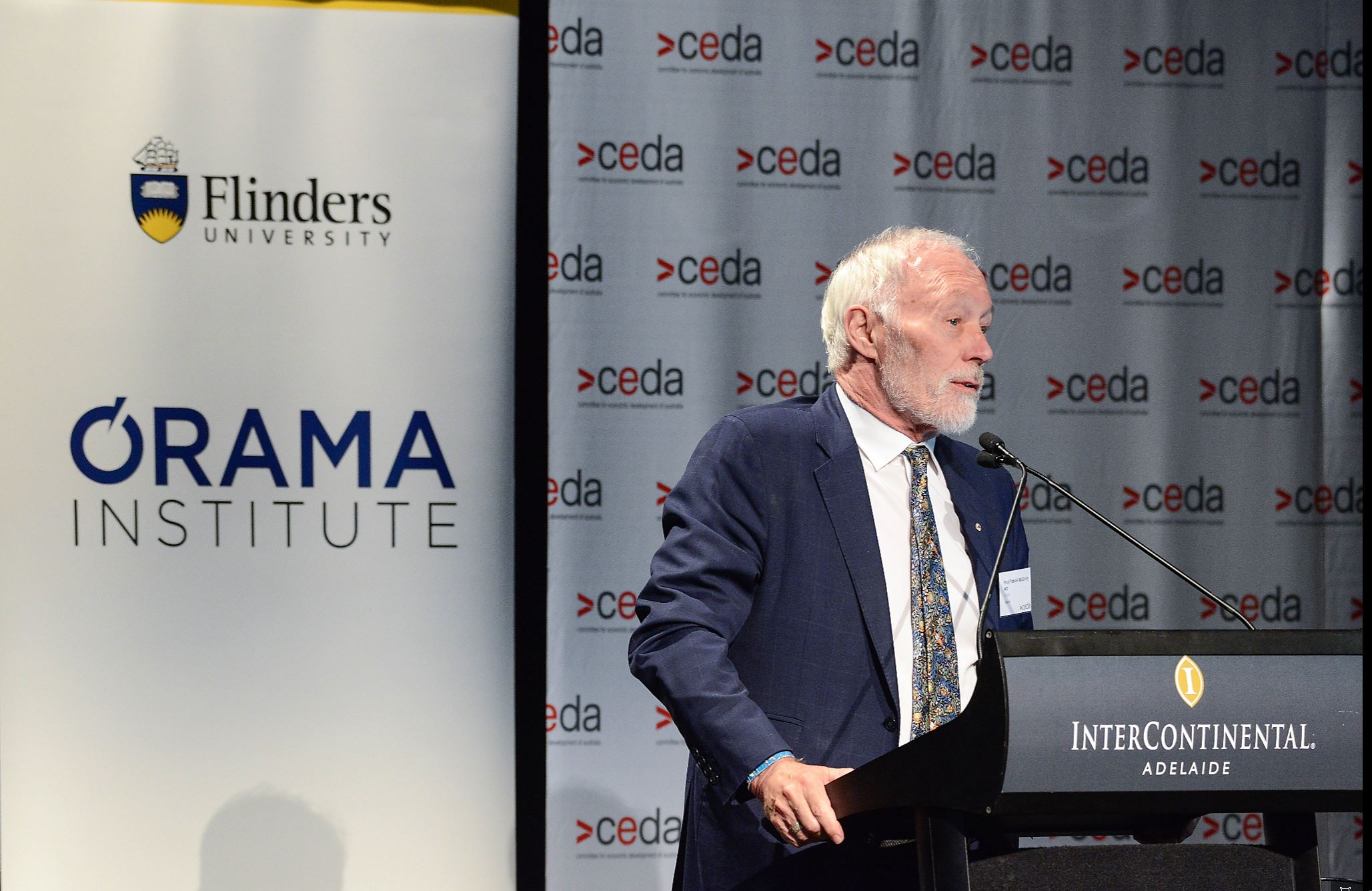
Awareness about mental health has become a substitute for actually doing something, says Professor Patrick McGorry AO, Australia’s leading campaigner for mental health.
Speaking at an Adelaide seminar on mental health and wellbeing, Melbourne-based Professor McGorry was pleased to acknowledge the launch of Órama, Flinders University’s new Institute for Mental Health, Wellbeing and Neuroscience.
Professor McGorry noted that Órama’s holistic research approach, which blends the disciplines of neuroscience, psychiatry, psychology, allied health, engineering, social science, education and public health, is the right way to proceed with developing better mental health care.
“Responding to mental health problems is an urgent priority – but a stronger focus is also needed on prevention to curb escalating costs in Australia,” said Professor McGorry, noting that high public awareness of mental health is not translating to action or sufficient help for about 4 million Australians requiring some form of mental health care.
“This neglect can’t be ignored any longer,” says Melbourne-based Professor McGorry, highlighting that in Victoria three of every four young people coming to receive clinical mental health problems have to be turned away due to insufficient resources.
“It’s a broken system and this is a disgrace in a country like Australia.”
Professor McGorry underlines that this issue feeds into the nation’s social and economic wellbeing, as current direct and indirect costs of mental illness care is 4% of GDP, and this amount is expected to double by 2030.
“If this continues, we will be falling further behind in our obligation to improve mental health services for all Australians,” Professor McGorry said at a CEDA event in Adelaide.
“Solutions are needed, which means redesigning the mental health system – and that carries a significant cost.
“In a federal election year, I want to see a commitment for more funding to ensure better outcomes.
“The translation of new research into general practice is now the urgent priority in mental health advancement in Australia.”
Órama is a multi-disciplinary research institute which will focus on research and discovery related to the overall wellbeing of brain, mind and body, in a fresh way that embraces a whole-of-person approach. It’s an innovative, holistic endeavour that is being applauded by experts.
Professor Mike Kyrios, Vice-President of the College of Education, Psychology and Social Work at Flinders University, has led the formation of Órama, the Flinders Institute for Mental Health, Wellbeing and Neuroscience.
He says the facility will provide significant breakthroughs for addressing mental health issues by addressing five main themes that reflect both current research strengths and best prospects for future growth, in areas of: Mental health and emotional wellbeing; Mental health disorders; Trauma and violence; Services; Neuroscience and neurocognition.
“Research at Órama takes a whole-of-person approach, incorporating research at the brain and cellular level right through to research around people’s experiences, health systems, service delivery models and educational or preventative science,” says Professor Kyrios.
ABS Research suggests that at least one in five people aged 16 to 85 experience one of the common forms of mental illness in any year.
The estimated annual cost of mental ill-health in Australia is more than $60 billion – around four per cent of GDP, or about $4000 for every taxpayer.
“Mental illness is widespread in Australia, not only affecting the quality of people’s lives, but it also has substantial impact on families, communities, productivity and business,” says Professor Kyrios.
“Therefore, Órama Institute will enable impactful research that will ultimately improve mental health and wellbeing outcomes for all people and communities across Australia and the world.”
Professor McGorry is known worldwide for his development of early interventions for young people, especially through his work as executive director of Orygen: The National Centre of Excellence in Youth Mental Health, and creation of headspace, the National Youth Mental Health Foundation, which earned him public recognition as Australian of the Year in 2010.

